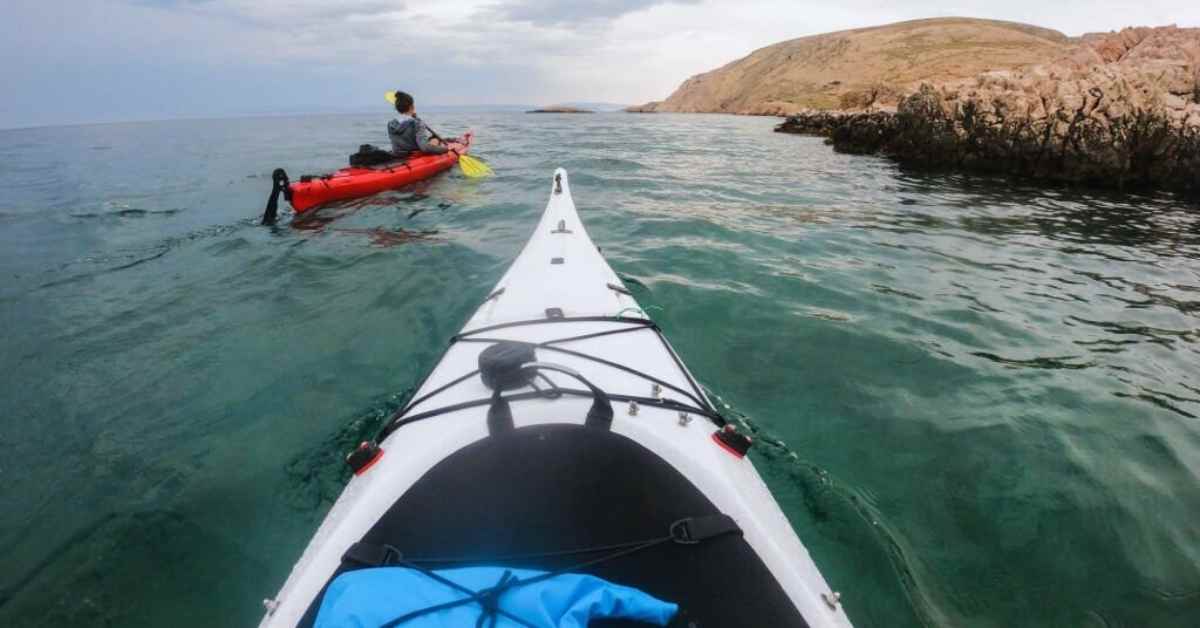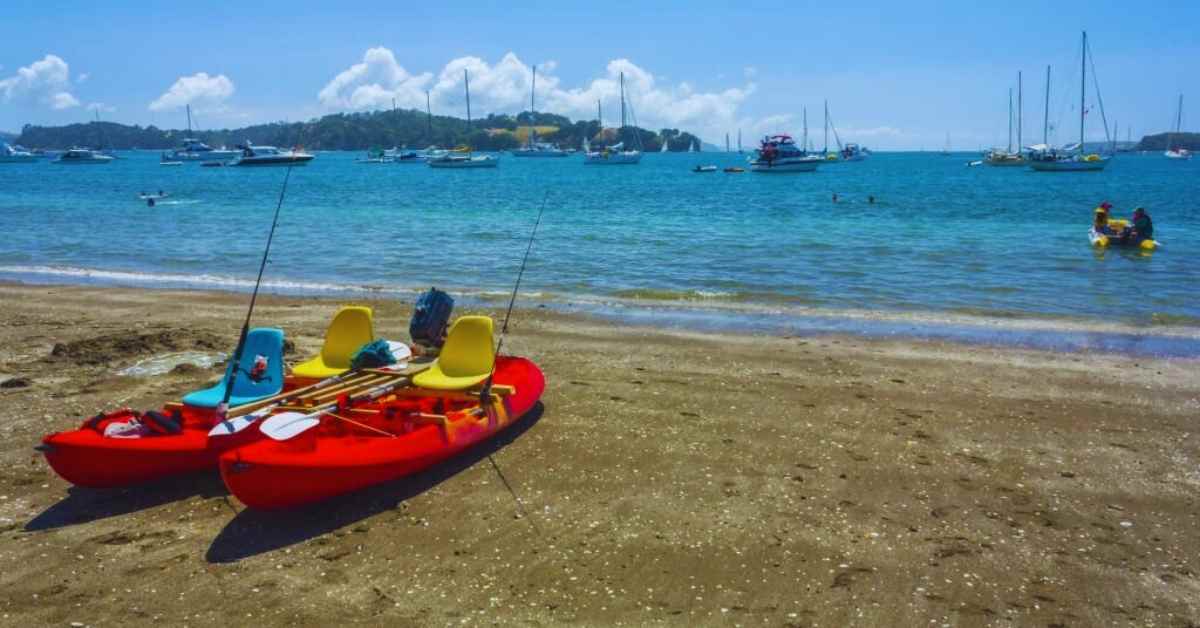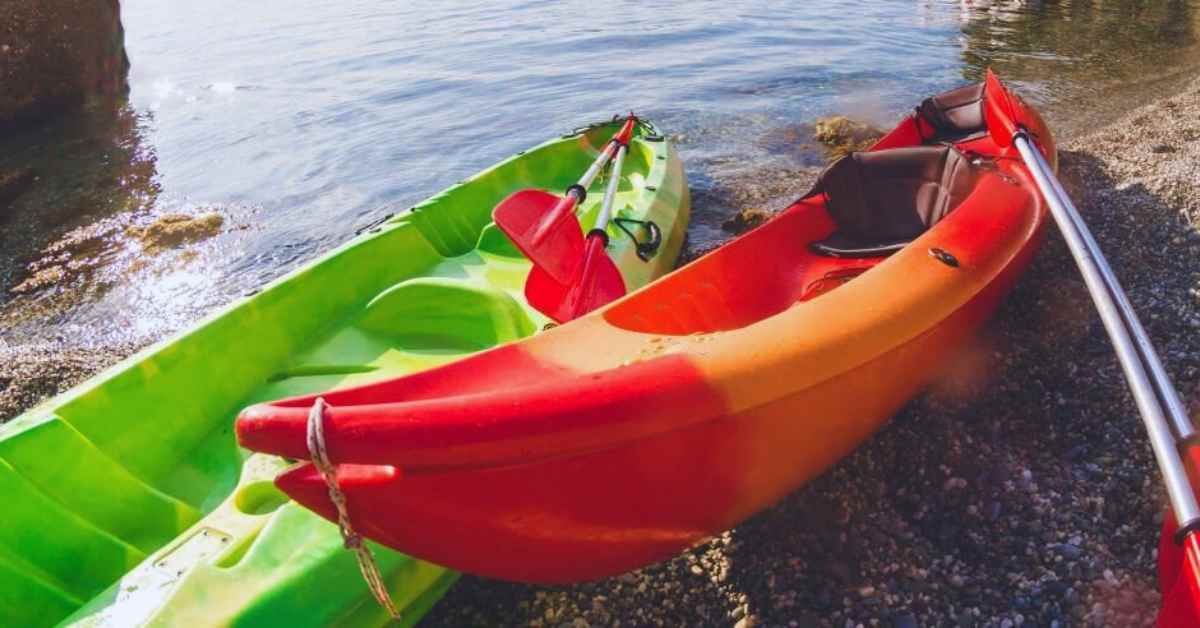Determining whether a kayak is classified as a boat involves legal interpretation. The United States Coast Guard defines a boat as any water transportation vessel, including non-motorized ones like kayaks. However, the classification of kayaks as boats can differ based on context and jurisdiction.
In this guide we will discover Is A Kayak Considered A Boat. Certain regulations that apply to larger vessels may not be required for kayaks in some cases. It is crucial for kayakers to be aware of their craft’s legal status to ensure compliance with relevant laws and regulations.
Table of Contents
Is Kayak a Boat?
The question at hand revolves around whether a kayak should be classified as a boat. When we think of the term “boat,” it typically refers to a watercraft that can be powered by oars, sails, or an engine.
On the other hand, kayaks are narrow and lightweight vessels that are propelled using a double-bladed paddle. While kayaks are commonly used for recreational activities, they also serve purposes such as fishing, touring, and even racing.
Therefore, it is reasonable to consider a kayak as a type of boat, although it possesses distinct characteristics in terms of design and method of propulsion compared to other watercraft.
Kayaks vs Boats: Differences?
Compared to regular boats, kayaks have numerous major features. Small kayaks allow one or more people to experience the water more intimately.

They are paddled using a double-bladed paddle for precise control and mobility. Traditional boats, including powerboats and sailboats, are more diverse.
These boats are bigger, carry numerous people, and use motors or sails for diverse water experiences. Kayaks are a subclass of boats, although “boat” embraces a larger range of watery watercraft.
What Makes a Kayak Boat?
Kayaks are unique boats owing to their design and function. Floating, transporting, and carrying people are its basic properties.
However, kayaks have unique properties. They are smaller, streamlined for efficient paddling, and suitable for kayaking, fishing, and exploring.

Many boats employ motors or wind power, but kayaks are paddle-powered. A kayak is a boat that falls into a specialist category owing to its form and use.
Is it Appropriate to Refer to a Canoe as a Boat?
Yes, a canoe is a boat. Similar to kayaks, canoes are vessels. Like kayaks, canoes are narrow, open-top watercraft propelled by paddling. They may be used for fishing, boating, and pleasure on calm water.
Canoes and kayaks are tiny and paddled, yet they have different forms and tactics. Canoes are open and have higher sides, making them ideal for camping and other activities that need more room. Both kayaks and canoes are vessels that provide fun on the water.
What Makes a Boat a Canoe?
Canoes are boats with a specialized design and paddling style. Canoes have an open-top, thin hull with a single-bladed paddle. This paddle alternates between the left and right sides of the canoe for quick and smooth sailing.

Canoes are flexible for paddling, fishing, camping, and exploring because to their open design. Canoes have higher sides than kayaks, giving passengers and cargo greater room and stability.
Are All Kayaks Canoes?
Not all kayaks are canoes. Kayaks and canoes have different properties. While both are paddle-powered boats, they vary greatly.
Double-bladed paddles are used to paddle kayaks, which feature a closed deck and cockpit. Canoes are open and paddled with a single-bladed paddle. It’s crucial to distinguish kayaks and canoes by their unique characteristics since terminology differs by place and culture.
Which is better: canoe or kayak?
Canoes and kayaks rely on your choices and usage. Canoes can transport people, luggage, and bigger things due to their room and adaptability.
Family activities, camping, and fishing are popular among them. With their closed decks and streamlined designs, kayaks provide a more personal paddling experience.
Solo paddlers, narrow-water kayakers, and whitewater enthusiasts favor them for their mobility. The choice between a canoe and a kayak depends on your demands and sailing expertise.
FAQs
Q: Are there various kayaks?
A: Yes, kayaks are built for different activities. Recreational, touring, sea, whitewater, and fishing kayaks are examples.
Q: Are kayaks regulated like other boats?
A: Kayak safety equipment, navigation lights, and life jackets are regulated by the water body and municipal laws.
Q: Can kayaks fish?
A: Many kayaks are intended for fishing and include rod holders and gear storage.
Q: Do kayaks fit beginners?
A: Yes, certain kayaks are stable and easy for novices. Choose a kayak that suits your skill level and needs.
Q: Do kayaks need maintenance?
A: Kayaks often need little upkeep. Regular cleaning and dry storing might extend their longevity.
Q: Are kayaks suitable for rivers and oceans?
A: Kayaks may be utilized in placid lakes, rivers, whitewater rapids, and the ocean.
Q: Do kayaks work for solitary paddling?
A: Yes, kayaks are commonly used for solitary paddling, and certain types are built for it.
Q: Does kayaking allow competitive sports?
A: Yes, kayak racing, slalom, and freestyle kayaking are prominent competitive sports.
Conclusion
Whether a kayak is classified as a boat depends on its design and function, which might vary in different contexts and jurisdictions.
While both kayaks and canoes are considered boats, they have distinct characteristics that set them apart. It’s crucial for boaters to understand these differences in order to comply with relevant laws and regulations and choose the watercraft that best suits their needs and preferences.
Whether you prefer the streamlined design of a kayak or the open versatility of a canoe, both provide wonderful opportunities for enjoying time on the water and exploring nature.
Ultimately, your decision between a kayak and a canoe will depend on your personal preferences, intended activities, and the type of boating experience you desire.
![Is A Kayak Considered A Boat [Beginner Guide 2023]](https://kayakrock.com/wp-content/uploads/2023/09/Is-A-Kayak-Considered-A-Boat-3.jpg)